#130th birthday
Explore tagged Tumblr posts
Text

House Gale plans January a surprise party. (from left to right, my interpretations of Molotov, Okonkwo, Martinez, Francis, and Ren)
Gale stopped in their tracks. “Do you know what day it is?” “Yeah,” January said. “It’s Tuesday.” “The date,” Gale said. This took him a little bit longer. “It’s the 130th of Winter?” “The date on Earth,” Gale said, looking like they were struggling not to laugh. “No, why? Is it a holiday? There was nothing on the news,” January said. “It’s the twelfth of January.” “Oh,” January said. “Congratulations, you’re a year older.”
January 12th by sylvansalvia (@river-gale)
HAPPY BIRTHDAY KING
#the mars house#my art#fanart#art#natasha pulley#pulleyverse#thank you again tess for writing such wonderful words theyre my lifeline
34 notes
·
View notes
Text
If you need a pick-me-up, remember that Jolkien Rolkien Rolkien Tolkien regretted he didn't have Jewish family, and explicitly told this to the nazis.
133 notes
·
View notes
Text
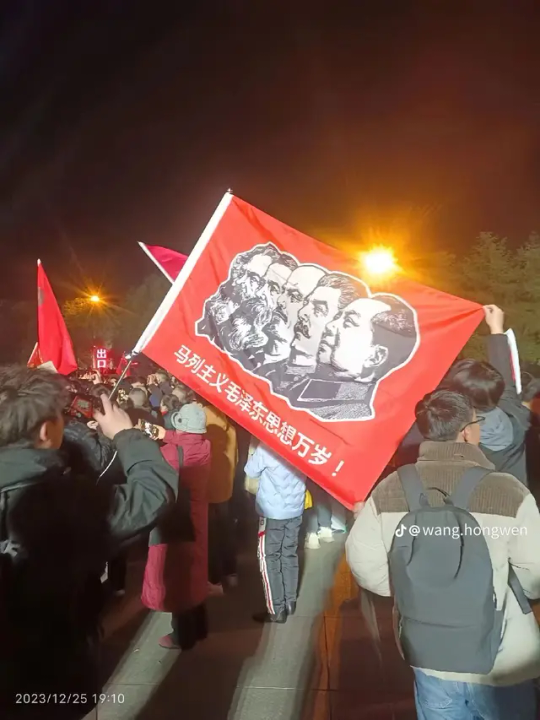
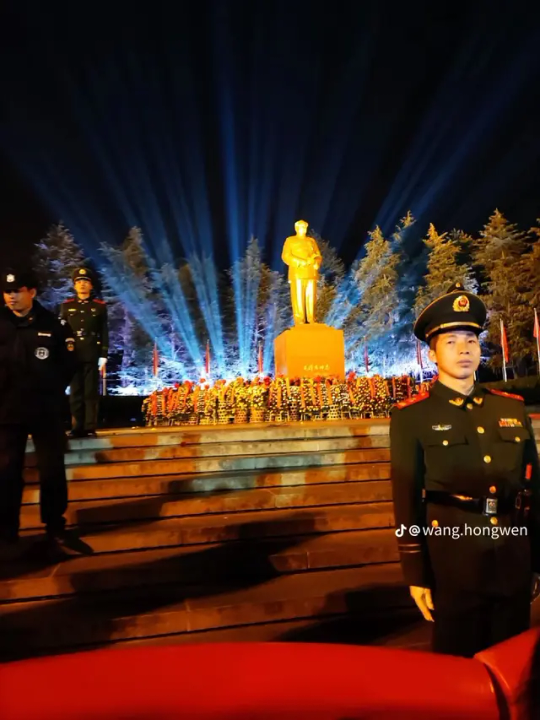
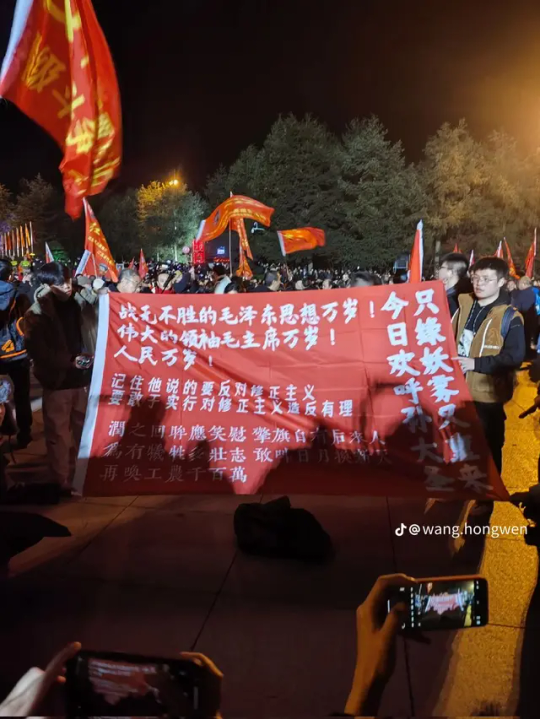

Massive crowds gathered in Shaoshan, Hunan, to celebrate the 130th birthday of Chinese Revolutionary Mao Zedong, with many younger attendees shouting slogans dating back to the Cultural Revolution such as "No crime in revolution!," "To rebel is justified!," "Down with capitalism, revisionism, and imperialism!," "Long Live Chairman Mao!" and singing, "The East is Red."
94 notes
·
View notes
Text

Happy 130th Birthday, Wilhelm Klink!
13 notes
·
View notes
Text
by Dion J. Pierre
The Museum of Jewish Heritage in New York City is celebrating the 130th birthday of the Polish-Jewish artist Arthur Szyk with a special lecture series hosted by the world’s leading expert on his work.
Titled, “Commemorating Arthur Szyk’s 130th Birthday,” the lecture series will include four 90-minutes sessions led by award winning author Irvin Ungar, a former rabbi who has studied Szyk for over 30 years, publishing three books about him and hosting exhibitions of his art at museums throughout the world. Among art historians, Ungar’s scholarship and curation is credited with single-handedly fostering a “Szyk renaissance.”
Born in 1894 in the city of Łódź during the Russian Partition of Poland, Szyk, though his life ended prematurely in 1951, lived through a violent and epochal moment in history — an age of revolution, world war, and genocide. His works, from sketches of the Boxer Rebellion he drew at the age of six to his depiction of Hitler as Pharaoh — and later, Hitler as Anti-Christ — were expressive commentaries on troubled times.
After Germany’s invasion of Poland in 1939, Szyk fled to England and then America, where he earned a reputation as a “soldier in art” for portraying the Nazis and Axis leaders as primal mad men and using irradiating imagery to alert the world to the plight of the Jewish people under Nazi occupation, an issue that affected him personally. In 1940, his mother, Eugenia, was murdered in the Chełmno extermination camp, just 30 miles from the city in which he grew up. Many more of his relatives — and his wife’s — were murdered during the Holocaust.

Arthur Szyk, Anti-Christ, 1942
Szyk’s contemporaries widely acclaimed his work, both for its creativity and social consciousness. In 1949, he published “Do Not Forgive Them, O Lord, For They Do Know What They Do!,” an anti-racist drawing that condemned the bigotry which Black soldiers who fought fascism abroad faced in the segregated American south. In the piece, a soldier is on his knees and bound by rope while two hooded Klansmen holding shotguns watch him from a distance. His humanism once prompted allegations that he was a member of the Communist Party, charges which were entirely unfounded.
Today, Szyk is best known in the Jewish world for what is regarded as his magnum opus, The Haggadah, an “illuminated manuscript” which tells the story of Passover Seder in a series of watercolor illustrations. It was thoroughly anti-Nazi, linking the oppression of Jews in Nazi Germany with the enslavement of Jews in Egypt and, ultimately, their Exodus.
There is much more to learn about Szyk, Irvin Ungar told The Algemeiner on Thursday during a phone interview, including his tireless advocacy on behalf of the Zionist movement and the establishment of the State of Israel, as well as his “prolific” production of illustrations for modern editions of classic books such as Canterbury Tales and Anderson’s Fairy Tales.
“My job has been how to bring all these various aspects and dimensions of Arthur Szyk together and to present an unbelievably talented and creative artists who excelled in book illustration, religious art, and political art,” Ungar said. “He was excellent in all three. It’s very rare to find any artist who can excel in all three areas with the great degree of skill and craftsmanship which he did.”
Szyk, an “artist of and for the Jewish people and for the world,” transcended his time, Ungar added, and continues to speak to ours. Rising antisemitism, illiberalism on the far-right and far-left, and great power conflict were the major themes of his art and make him an invaluable resource for comprehending a world in peril.
“He has something to say to us today,” Ungar emphasized. “He had something to say about United Nations in 1947 and 1948. It applies today. He had something to say about antisemitism being the great softener of his democracy at that time, and that would also apply to our day. You can find numerous of his artwork and think ‘That was created for today,’ and that in my mind is why his artwork is eternal.”
Commemorating Arthur Szyk’s 130th Birthday, begins on Monday, February 26, at 7 PM. Ungar will give two more lectures in March before concluding the series on April 8 with an exploration of The Haggadah.
18 notes
·
View notes
Text

hello it is Shepard's birthday once again... happy -130th!!! In modern verse, she's 41 today!!!
#OOC.#[ homophobic the way i need to go invigilate an early exam for 2 students in another hour.. smh ]#[ but anyway I might do her drafts later ]#[ but send asks? kisses? idk be gay w shep ssdjfh ]
8 notes
·
View notes
Text
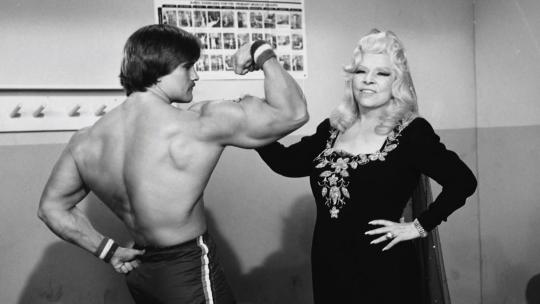
Considering Mae West’s 130th birthday was in August and the anniversary of her death (22 November 1980) is later this month, the 16 November installment of the Lobotomy Room club is a tribute to cinema’s high empress of sex! And - because this is the Lobotomy Room film club (devoted to Bad Movies for Bad People) – rather than show one of her 1930s classics, we’re screening West’s infamous final movie Sextette (1978)!
Persuaded to make one last film, the 84-year-old diva made zero concessions to her age and cast herself as a much-lusted after bombshell Marlo Manners, surrounded by besotted male admirers (including 34-year-old future James Bond Timothy Dalton as her husband-to-be. The rest of the oddball cast includes Ringo Starr, Alice Cooper, Keith Moon, Tony Curtis and George Hamilton).
Yes, the mind-boggling, misbegotten musical comedy Sextette is an unintended camp classick which made The New York Times declare, “Granny should have her mouth washed out with soap, along with her teeth!" BUT: I recently watched the 2020 documentary Dirty Blonde, which proposed a kinder reappraisal of West’s reviled later films Myra Breckenridge (1970) and Sextette, asking the viewer why we are so horrified by West still flaunting her sexual appetites into old age. As film historian Jeanine Basinger argues, “There’s a wonderful courage and defiance” to West’s sheer stubbornness in taking what she had in the 1930s and trying to make it work in the 1970s. Judge for yourself over cocktails at Fontaine’s bar on 16 November!
Lobotomy Room Goes to the Movies is the FREE monthly film club devoted to cinematic perversity. Third Thursday night of every month downstairs at Fontaine’s cocktail lounge. Numbers are limited, so reserving in advance via Fontaine’s website is essential. Alternatively, phone 07718000546 or email [email protected]. The film starts at 8:30 pm. Doors to the basement Bamboo Lounge open at 8:00 pm. To ensure everyone is seated and cocktails are ordered on time, please arrive by 8:15 pm at the latest. Info.
#mae west#sextette#lobotomy room#dirty blonde#raunch queen#high empress of sex#bad movies we love#bad movies for bad people#bad movies rule#bad taste#shock value#lobotomy room film club#diva#kween#vintage smut#vintage sleaze
17 notes
·
View notes
Text
Just after Christmas, the People’s Republic of China’s increasingly authoritarian leader-for-life Xi Jinping celebrated Mao Zedong’s 130th birthday. Xi led the Politburo’s Standing Committee in a requiem in the Great Hall of the People for the infamous Red Emperor, the greatest mass murderer in modern if not all human history. The members thrice bowed before the grand killer’s statue and remembered his “achievements.”
Mao’s thoughts are a “spiritual treasure” and would “guide our actions in the long term,” Xi said. The Chinese people must “work to enable our party to adhere to its original mission … maintain vitality and vigor, and ensure that our party never degenerates, never changes its color, and never loses its flavor.” Under Mao, Xi said earlier last year, the Chinese Communist Party developed a “brand new form of human civilization.”
Ironically, by strengthening his arbitrary rule, Xi is actually making an eventual counterreaction more likely. Ever-tightening repression poisons the entire system. Fear exiles honesty and accountability in policymaking, leading to more and bigger mistakes, including at the top. State centralization and politicization are reversing the very forces that spurred economic growth. The determination to indoctrinate as well as regulate already has spawned antagonistic youth movements that challenge authority. Political stability is likely to be only temporary; when Xi passes from the scene, the succession fight is likely to be more bitter and fraught.
Not everyone agrees with Xi. On a recent trip to China, I met an academic colleague who expressed profound pessimism, which he said many intellectuals and others shared. In the past, he observed, they at least could look forward to some change every five or 10 years, when a new party general secretary (and president) was chosen.
But no longer. Not only is Xi president for life, but the party is also rapidly reverting back to the habits of the Maoist era.
Yet Xi was not alone in reveling in the supposed achievements of the Great Helmsman. Mao’s birthplace in the southern Hunan province, which I’ve visited, has long been a major tourist destination. Today, it may be the one place in China where a dissident can covertly promote revolution. As a Nikkei report on the anniversary observance noted, “The younger attendees on Tuesday seemed particularly inclined to chant slogans considered more extreme in their rhetoric. Those included such slogans adopted by China’s Red Guards during the Cultural Revolution as ‘No crime in revolution!’ and ‘To rebel is justified!’”
However, as Xi concentrates his power, I wonder who these young visitors think they’re rebelling against.
Right now, Xi’s power seems unshakeable. But so did Mao’s during his lifetime. Almost immediately after he died, policies began to change—and had shifted on the ground even beforehand. Within a decade or two, the country was almost unrecognizable.
Some of the devotion to Mao was real, and he retains some fervent fans. When I visited his impressive mausoleum in Tiananmen Square a few years ago, the lines were long. Many people bought flowers from vendors before entering to set before Mao’s massive bronze statue in the entryway. Some visitors seemed genuinely overcome with emotion. However, capitalism ultimately triumphed: On exiting, everyone passed by stalls marketing overpriced Mao tchotchke.
That the Chinese Communist Party (CCP) continues to cling to Mao to maintain its revolutionary credentials is embarrassing, but hardly surprising. Mao remains one of China’s most recognizable symbols. His portrait hangs on the Gate of Heavenly Peace on Tiananmen Square’s northern edge. His mausoleum dominates the space and is much more impressive than Vladimir Lenin’s dark and dank resting place. And Mao’s face adorns China’s currency.
All this was built on a pile of corpses. The CCP consolidated power with campaigns against so-called counterrevolutionaries, landlords, and other enemies, killing 5 million or so Chinese. In 1950, Mao made the decision to enter the Korean War to save North Korean leader Kim Il Sung. Some 200,000 Chinese soldiers died, along with untold thousands killed by them in a war prolonged by two-and-a-half years. In 1956, Mao initiated the Hundred Flowers Campaign or Movement, in which he encouraged the people to speak freely. Apparently shocked after receiving criticisms rather than encomiums, he responded with the Anti-Rightest Movement, in which millions were killed.
In 1958, Mao’s fertile mind came up with his worst idea yet: the so-called Great Leap Forward, simultaneously collectivizing farming and decentralizing manufacturing. Estimates of total deaths vary widely, but perhaps the most comprehensive account came from a party member and Xinhua reporter. Yang Jisheng figured: “[T]he Great Famine brought about 36 million unnatural deaths, and a shortfall of 40 million births.”
Mao’s final flight into pure madness was the Great Proletarian Cultural Revolution. The murderous mix of party purge, civil war, and social collapse may have caused as many as 2 million deaths.
Mao’s death was almost as consequential as his life. Pragmatic revolutionary Deng Xiaoping won the resulting power struggle and moved China down the course of economic reform. However, Deng, like Mao, rejected political liberalization and orchestrated the 1989 Tiananmen Square crackdown, which was followed by purging millions of party members.
The CCP recognized that Mao had made mistakes, but it was unable to let go of the legacy of the national founding father altogether. Mao was still 70 percent right, the official verdict decided. (Contrast the Soviet Union’s Nikita Khrushchev, who was able to take Joseph Stalin’s legacy down entirely, in part because Lenin provided a convenient alternative state founder.)
Even after Tiananmen, China remained far freer than under Mao. However, that was then. In almost every way, Xi has shoved his nation backward.
Independent journalists and human rights lawyers are gone. Internet controls are tighter. Repression of churches is more intense. Academic exchanges are more limited. Controls over Tibetans, Uyghurs, and Hong Kongers have metastasized. Companies host party cells. Business is being made to serve the CCP.
And Xi has greatly strengthened party and personal control and uses both propaganda and coercion to insist that everyone thinks like him. He has tried to control history, presenting an idyllic version of the party’s bloody past. There is a burgeoning personality cult, though it seems perfunctory, lacking the ardor and intensity that more often surrounded Mao, at least during the latter’s life.
An important problem with Xi’s retreat to Maoism is the absence of Mao. Give the latter his due: Charismatic and driven from the start, he took a weak and divided movement from defeat to triumph and cast off centuries of Western and Japanese imperialism. In contrast, Xi is a colorless apparatchik who carefully ascended a party structure created by others. He wants Mao’s control without having earned, brutally and bloodily, Mao’s power.
Opposition exists but is futile. Wall Street Journal reporter Lingling Wei reported on a meeting at which a forlorn liberal administrator who had worked on stock market reform “signaled me to a corner of the venue. … ‘The whole thing about getting listed companies to set up party committees,’ he said, ‘is a reversal of what we had tried to do.’ Then he walked away without saying anything else.”
Indeed, China may be slipping back toward the Soviet Union in terms of political sentiment, if not economic achievement. People are still much better off than before, but a sense of ennui, even despair, afflicts those who desire personal freedom to enjoy their material bounty and personal opportunity to shape the social order around them. Xi, like Leonid Brezhnev, insists that soulless apparatchiks are the center of society.
It appears to be the fate of every nation that the worst will get on top, sometimes. However, as Friedrich Hayek predicted, they will do so more often in communist systems.
China is proving the rule. There was Mao. Now there is Xi. With Xi celebrating Mao, hopefully there won’t be another.
11 notes
·
View notes
Text

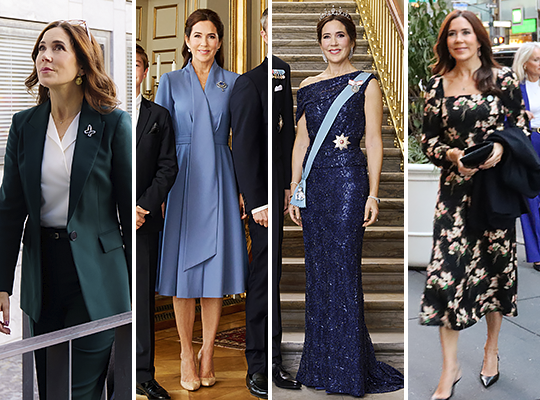

Crown Princess Mary’s Official Engagements in October 2023:
03/10: Opening of Parliament
03/10: The Mary Foundation Presidium Dinner
05/10: Visit to Danish Hospital Clowns
12/10: 50th Anniversary of BUPL
12/10: Meeting with the Crown Princess Mary Center Advisory Committee
15/10: Prince Christian's 18th Birthday - Balcony Appearance
15/10: Prince Christian's 18th Birthday - Gala Dinner
23/10: Visit to New York - UN Mission Reception
24/10: Visit to New York - UN Day Conferences & Promoting Denmark’s Candidacy for the UN Security Council 2025-2026
25/10: Visit to North Carolina - World Anti-Bullying Forum 2023
30/10: 130th Anniversary of Offside Social Gardens
31/10: Meeting with Rare Diagnoses Association
16 notes
·
View notes
Text
The Intern - a modern-day twist
Another Monday morning, another weekly meeting with the Historical Architects. Esme sat at her desk in her study and awoke her computer with a flick of the mouse with her long, slender fingers. Her screensaver of a beautiful Isle Esme sunset burst onto her screen, bringing a smile to her lips and making her feel the sun's warmth on her pale skin. She looked at the two black silhouettes who stood close in a tight embrace against the deep orange and red of the sky and suddenly wished for her other half to be here with her. Carlisle had been working away, helping to implement a new care facility in Montana and was not due back for another week. He’d been gone for 3 weeks already, and although they had spent much longer apart in the past, it was never easy. Most of her time was devoted to the Historical Architects, a consulting firm for historical renovations. It was a small but successful company, and Esme had been a part of the team for a year now. She started as an intern, pretending to be fresh out of her design degree. She was currently working towards a master's in history. Carlisle often joked with her that she was a master of history, having just surpassed her 130th birthday, which usually earned him a playful smirk, which he quickly erased with his lips.
Her email pinged, and in the subject line was New Interns Starting. She opened the email and scanned the information. 3 new interns would be spending 2 weeks with the team for experience. She liked most interns who came to the firm, but some were just there for extra credit or because their parents made them. She didn't pay too much attention to the names or introductions as she generally didn’t have much to do with them in her role. That was until the following email came through.
Help Please - good morning Esme, would you be able to spend some time with one of the new interns, Johnathon Brown. He lives near you and is keen on Art Deco renovations. I understand you are currently working on the Picture House - it may be good to take him along the next time you are due to visit.
All the best, Jen
Huh, this was new for Esme. She supposed she could take him along. She had never had an intern shadow her before. It was bound to happen one day. I just hope he’s here for the right reason.
Just then, the sun burst through the slatted blinds and bounced off the skin on her hand, illuminating the room around her with tiny rainbow fragments of light. She stood up, closed the blinds, shutting the sun away, and settled herself in for the meeting. She dialled in, feeling slightly nervous about meeting this intern. She hasn’t been overly comfortable making connections since a run-in with Carlisle's old colleague in 1975. Luckily, the man was very old with fading memories, and they managed to assure him and his daughter that Carlisle was, in fact, a descendant of Dr Cullen’s who looked like his great-grandfather. Now, with cameras and information in their hands, they needed to stay under the radar. Which is why they lived apart from the rest of the coven and moved around far more than usual.
Esme said her polite morning greetings to the team of 15. She was just settling back into her chair, putting herself on mute, when Johnathon Brown popped up in the tile in the corner of her screen. Esme’s jaw dropped. She rarely felt stunned or shocked, but she felt like a bolt of electricity coursed through her body, somehow kickstarting her heart to beat again. It couldn’t be. She leaned in closer to the screen. The damn tile was so small she needed to see if it was him. Then, her boss, Jen, asked everyone to introduce themselves to the new interns. Esme reached for her phone, but no notifications. She knew calling in a work meeting was frowned upon, but she needed to know. Her fingers worked fast as her co-workers started the introductions and located Carlisle's number. It rang and rang until she heard her name from her computer.
4 notes
·
View notes
Text









Happy -130th birthday to my favorite girl, Commander Alexa Shepard!! She's a colonist/sole survivor adept who romances Garrus <3 <3 <3
don't ask how long it took to narrow down screenshots lol
6 notes
·
View notes
Text
happy 130th birthday chairman mao and happy 55th birthday of the communist party of the philippines
3 notes
·
View notes
Text

2023 version! Happy 130th Birthday Wilfred Owen!
9 notes
·
View notes
Text
Groucho on "The Morning Show"
Season One of The Morning Show was imperfect but we liked it, so we tuned in to Season Two, which is a multivehicular car wreck. However episode 6, which premiered October 22, 2021 had a wonderful surprise. In that episode co-host Bradley Jackson (Reese Witherspoon) anchors a segment on Groucho Marx’s 130th birthday (it is set during 2020). Her guest is a distinguished older gentleman who seems…

View On WordPress
2 notes
·
View notes
Text

Weekend Fun: On Saturday, we had a great time celebrating the birthday of Imani Scott, President of the New Amsterdam Musical Association (NAMA). She has a voice of an angel and she blessed us with her 6-octave vocals with a beautiful rendition of "Wing Beneath My Wings." She's doing wonderful things with the organization. We also celebrated our friend, Russia Montanez's birthday, one of the members of Manny's Boogaloo Crew. It was a lovely affair! I hope you enjoyed your weekend!
About New Amsterdam Musical Association (NAMA) 107 W 130th St, New York, NY 10027
Founded in 1904, NAMA (New Amsterdam Musical Association), is the oldest African-American musical organization in the United States. It was founded at the time that the American Federation of Musicians Local 310 did not admit minority musicians. Taking matters into their own hands, NAMA became the first black music union thus allowing black musicians to perform in and around New York City! For more information, visit: NamaHarlem.org
0 notes
Text
Tenant farmers at heart of new National Trust strategy
The National Trust has unveiled a new 10-year strategy, marking a significant shift towards prioritising nature-friendly farming and food production in its conservation efforts. The plans, announced on Friday 10 January in celebration of the trust’s 130th birthday, place tenant farmers at the heart of the charity’s approach to tackling the climate and nature crises. The strategy, which follows…
0 notes